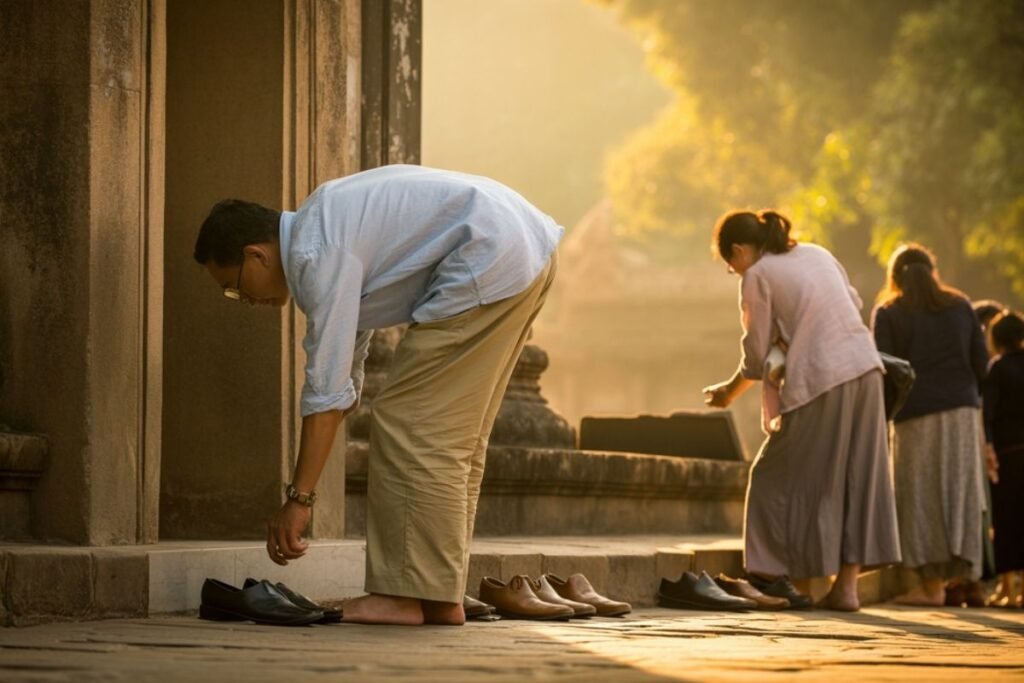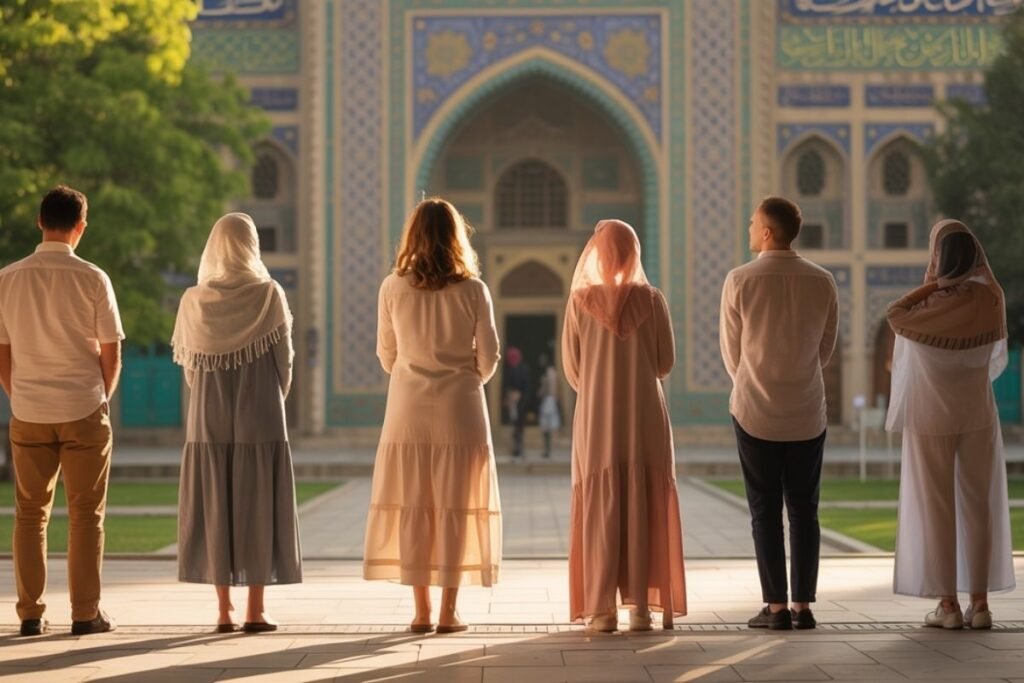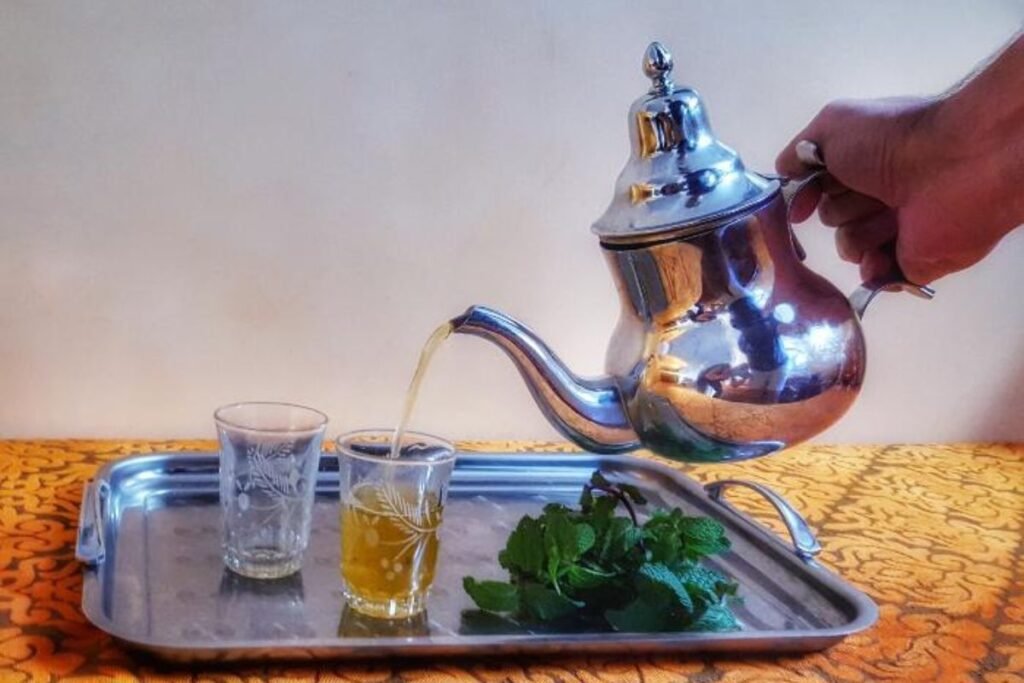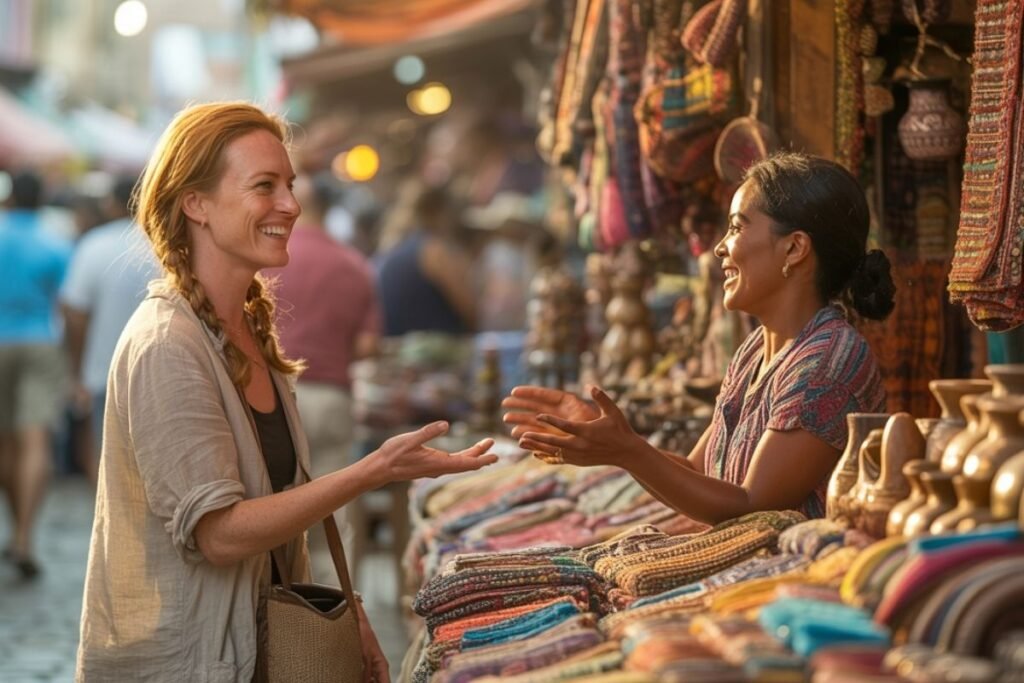
Travel Etiquette: Respecting Local Cultural Traditions Abroad is an essential part of meaningful travel. In today’s connected world, exploring new destinations opens doors to diverse cultures, traditions and ways of life. But with this privilege comes responsibility. Travel etiquette is more than good manners — it’s about showing genuine respect for the people and places you visit. Whether you’re exploring a bustling city, stepping into a sacred space or sharing a meal with locals, cultural sensitivity helps turn every trip into a memorable experience.
Embracing Local Traditions The Key to Immersive Travel

The heart of travel lies in cultural exchange. That means going beyond sightseeing and truly engaging with local customs. From learning a simple greeting to understanding how to dress respectfully, these small acts of awareness can make a big difference. Immersing yourself in traditions — whether it’s removing your shoes before entering a home, following dining etiquette, or participating in a local ceremony — shows appreciation and builds deeper connections.
Being respectful isn’t about getting it perfect. It’s about trying, listening, and being open to learning. This kind of mindset turns your travels into more than just a holiday — it becomes a personal journey of growth and discovery.
Why Understanding Local Customs Matters

With every journey, we’re given a chance not just to see the world — but to truly understand it. Each country has its own rhythm, shaped by history, tradition, and everyday life. From how people greet each other to what’s appropriate to wear or photograph, these cultural differences are everywhere — and they matter.
What may seem normal at home — a friendly hug, casual clothes, or snapping a quick photo — could be seen as inappropriate or even disrespectful elsewhere. Public displays of affection, modesty in religious spaces, or even how you use your hands all fall under local customs that travellers are expected to respect.
Cultural sensitivity goes beyond basic politeness. It means being open to different ways of thinking, adjusting your expectations around time, space, gender roles, or hierarchy — and responding with curiosity, not judgement. These small shifts help you build meaningful, respectful connections and leave a positive impression.
A little research before you go can go a long way. It not only prevents misunderstandings, but it also transforms your trip into a richer and more rewarding experience — one where you travel not just with your feet, but with awareness and heart.
Table of Contents
- Embracing Local Traditions – The Key to Immersive Travel
- Why Understanding Local Customs Matters
- Travel Etiquette Around the World: What to Know
- 10 Travel Etiquette Essentials to Deepen Cultural Understanding
- Cultural Etiquette Around the World: 20 Traditions from 20 Countries
- Universal Tips for Travelling with Respect
- Helpful Resources for Culturally Aware Travel
- Final Thoughts
🧳 Travel Etiquette Around the World: What to Know
Every country has its own cultural codes — some obvious, others more subtle. Here are just a few examples of things to be mindful of.

- Public displays of affection:
- Common in some countries, but considered inappropriate in others (especially in parts of Asia or the Middle East).
- Dress codes:
- Especially important at religious sites. Modesty is expected in many places — covering shoulders, legs, or wearing a head covering.
- Photography:
- Always ask before taking photos of people, and check if photography is allowed in cultural or sacred areas.
- Tipping:
- A norm in the U.S., but not always expected (or even welcome) elsewhere.
- Punctuality:
- Being “on time” can mean different things depending on where you are — for example, strict in Japan, relaxed in Fiji.
Doing a little research before your trip can help avoid awkward situations and show locals that you care about their way of life.
Travel Etiquette Essentials

- Local Eating Habits
- In many countries, dining customs are deeply tied to tradition. You may be expected to wait for elders to start eating, avoid using your left hand, or never stick chopsticks upright in rice (as in Japan). In some places, finishing all your food is polite; in others, it’s better to leave a little.
- Photography Etiquette
- Always ask before photographing people, homes, or sacred sites. In some cultures, taking photos can be seen as intrusive or even forbidden. In Aotearoa – New Zealand, for example, always ask permission before photographing a marae or participating in cultural ceremonies.
- Religious Practices
- Respecting prayer times, dietary rules, and dress codes is essential in countries with strong religious traditions. For example, remove shoes before entering temples or mosques, and dress modestly in places of worship.
- Gender Interactions
- Some cultures have different expectations around how men and women should interact. These norms may apply to greetings, seating arrangements, or physical contact, so observe carefully and ask if unsure.
- Local Celebrations and Ceremonies
- Festivals and rituals are beautiful windows into a culture, but they often come with specific etiquette. Dress appropriately, behave respectfully, and follow local lead if invited to participate.

- Environmental Etiquette
- In ecologically sensitive areas, such as national parks or marine reserves, follow local guidance on waste disposal, wildlife interaction, and trail use. What seems like a small action can have a big impact.
- Bargaining and Shopping Customs
- In some places, haggling is part of the experience — in others, it’s frowned upon. Research beforehand so you know when it’s appropriate and how to do it respectfully.
- Gift-Giving
- Bringing a small gift when visiting someone’s home is common in many cultures. The nature of the gift and how it’s given (with one hand or both, wrapped or unwrapped) can vary significantly.
- Taboos and Sensitive Topics
- Every culture has its own unique taboos — from body language to conversation topics. For example, pointing with your feet is rude in Thailand, and discussing politics may be off-limits in some countries.
- Language and Communication
- Even a few local phrases — hello, thank you, please — go a long way. It’s not about fluency, but about showing effort and respect. Use translation apps when needed, and speak clearly and kindly.
Understanding Cultural Etiquette
- Aotearoa – New Zealand
- The haka is a traditional Māori war dance, originally used to prepare warriors for battle. Today, it’s performed at ceremonies, celebrations, and sporting events. It reflects pride, strength, and unity. During haka, men often stick out their tongues, but women perform a fierce facial expression called pūkana, with wide eyes and a jutted chin. Do not imitate the haka casually or ask women to do pūkana like the men. Always observe with respect and silence.

- Japan
- Bowing is a central part of Japanese etiquette. It expresses respect, gratitude, or apology, with the depth and duration changing depending on the situation. Return bows when offered and avoid direct eye contact during the gesture.
- Thailand
- The Thai royal family is revered. Speaking negatively about them or defacing images is not just offensive — it’s illegal. Show respect by standing during the national anthem and remaining still when a royal motorcade passes.
- India
- Always use your right hand for eating, giving, or receiving. The left hand is traditionally considered unclean, especially in rural or traditional settings.
- Italy
- When visiting religious sites, dress modestly. Ensure your shoulders and knees are covered. Many cathedrals, including the Vatican, enforce dress codes, and some offer cover-ups at the door.
- United Arab Emirates
- Public displays of affection — like kissing or hugging — are considered inappropriate and may even lead to fines. Always dress modestly, especially in public areas outside resort zones.
- Brazil
- Physical closeness is part of Brazilian culture. Friends may greet with a kiss on each cheek or a warm hug. It’s a sign of friendliness, not a violation of personal space.
- Russia
- When giving flowers, always choose an odd number. Even numbers are associated with funerals and seen as bad luck.
- Mexico
- In social situations, arriving 15 to 30 minutes late is generally acceptable — and sometimes expected. However, punctuality is important in business or formal events.

- China
- When exchanging business cards, offer and receive them with both hands. Take a moment to read the card before putting it away. This shows respect and seriousness about the connection.
- France
- In many regions of France, greeting with light cheek kisses (la bise) is the norm among friends. Let locals take the lead — the number of kisses can vary depending on the region.
- Australia
- Acknowledging the Traditional Custodians of the land is increasingly common and respectful. Be mindful of Indigenous sacred sites, and if in doubt, ask locals or follow posted guidance.
- Egypt
- Tipping, known as baksheesh, is customary and appreciated for services like carrying bags or helping with directions. Keep small notes or coins handy to avoid awkwardness.
- Morocco
- Serving mint tea is a sign of hospitality. It’s polite to accept the offer, even if you only sip a small amount. The ritual of pouring and sharing tea is an important part of Moroccan culture.

- Turkey
- Always remove your shoes before entering someone’s home. In many households, slippers will be offered to guests. It’s a sign of cleanliness and respect.
- South Korea
- Elders are treated with high regard. Use appropriate titles and accept or offer items with both hands. Pouring drinks for someone older is also a gesture of respect.
- Greece
- Avoid extending your palm toward someone’s face — known as the moutza — as it’s a deeply offensive gesture. Be mindful of your hand movements, especially when declining something.
- Kenya
- Greetings are important and often extended. It’s common to ask about someone’s family and well-being. Take time with greetings — rushing through can be seen as rude or dismissive.
- Indonesia
- The head is considered sacred. Avoid touching anyone’s head — even playfully or affectionately. This applies to both adults and children.
- Spain
- The siesta is still observed in many parts of Spain, especially in smaller towns. Expect businesses to close in the early afternoon for a few hours before reopening later in the day.
🌿 Universal Tips for Travelling with Respect

- Learn before you go:
- Read up on local customs, religious norms, and basic do’s and don’ts.
- Watch and learn:
- Observe how locals behave — especially in sensitive places like temples, markets, or public transport.
- Be patient and flexible:
- Things won’t always go to plan, and cultural timing is often more relaxed.
- Be humble:
- If you make a mistake, offer a sincere and respectful apology.
- Ask when unsure:
- Most locals will appreciate your curiosity and effort to get it right.
For deeper understanding, consider using resources like cultural etiquette guides, travel forums or apps like Culture Trip, Google Translate or TripLingo.
🧳 Helpful Resources for Culturally Aware Travel
Understanding local customs is easier than ever with the right tools. Here are a few simple ways to travel more mindfully.

- Learn the Basics
- Apps like Duolingo and Babbel help with essential language skills, while Tripadvisor forums often highlight cultural dos and don’ts from locals and experienced travellers.
- Join Local Experiences
- Platforms like Viator, Get Your Guide, and Airbnb Experiences offer cultural workshops, food tours, and traditional classes. These hands-on activities help you connect with local etiquette in a respectful, authentic way.
- Pack with Respect
- Dressing appropriately matters. Temu is a handy site for affordable clothing that aligns with local norms — from modest attire for temples to practical gear for village visits.
- Protect Yourself and Others
- Travel insurance is a simple way to ensure you’re prepared for unexpected situations — and not relying on local systems without support if something goes wrong.
- Ask When in Doubt
- If you’re unsure, ask. Most locals appreciate curiosity and kindness — and it often leads to deeper connections.
🌍 Final Thoughts
Respecting local customs is part of being a thoughtful traveller. It’s not about getting everything right, but about travelling with awareness, kindness, and a willingness to learn. When we approach travel with humility and respect, we open ourselves up to richer experiences and more authentic connections.
🌍 Travel Planning Resources
These are the tools we personally use and trust when planning our travels from finding a place to stay to booking activities, transport and insurance. Let your Tohu guide you — Trust the Journey and follow what feels right for you.
- ✈️Flights – Compare great deals with Trip.com then Kiwi.com for flexible, affordable options.
- 🚐 Campervans – Compare rental deals with Motorhome Republic across Aotearoa and beyond.
- 🛏️ Stays – Compare hotels on Trip.com and TripAdvisor or Booking.com.
- 🚐 Rental Cars – Compare prices and book through Airport Rentals by Motorhome Republic for trusted brands and easy airport pickup.
- 🎟️ Activities – Browse tours and experiences on Viator, Get Your Guide, or TripAdvisor
- 🚆12Go Asia – Compare and book trains, buses, and ferries across Asia in one place with 12Go.
- 🛡️ Travel Insurance – Get flexible short-term coverage with Insubuy for your next holiday.
- 🔒 Protect Your Privacy with a VPN – We recommend Surfshark VPN for secure and private browsing while travelling. It’s fast, affordable and works worldwide — perfect for public Wi-Fi at airports, cafes and hotels.
- 📱 Travel eSIM – Stay connected with Airalo
- 💼 Lounge Access – Treat yourself with Priority Pass – for UK or US
- 🎶 Events & Concerts – Book tickets worldwide through Ticketmaster.
🧭 Note: Some booking links can be a bit shy when you’re using a VPN. If one doesn’t open, try pausing your VPN or switching to a different server location or secure Wi-Fi network to get things flowing again.
Toitū te marae a Tāne-mahuta, toitū te marae a Tangaroa, toitū te tangata
If the land is well and the sea is well, the people will thrive